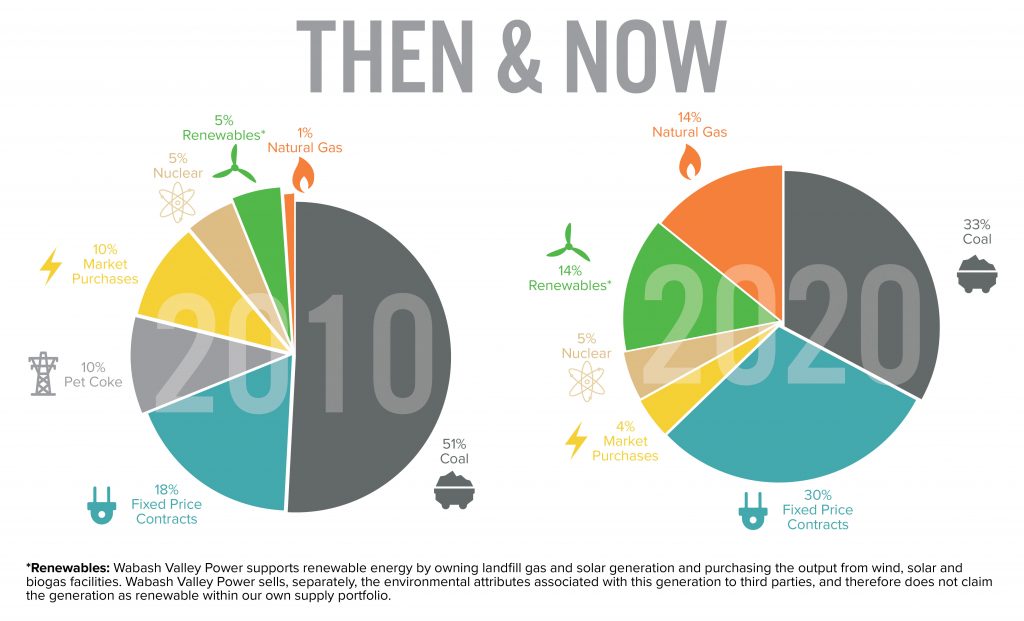Kankakee Valley REMC’s power supplier, Wabash Valley Power Alliance (WVPA), made a commitment over the past decade to dramatically change the way electricity is generated for its 23 member electric cooperatives and the more than 27,000 member-owners of our co-op. Advances in technology have made sustainable energy sources like wind and solar power not just good for the environment — but more and more affordable.
“Renewables like wind and solar were not the most economical choice for the first part of the last 10 years,” said Lee Wilmes, vice president of risk and resource portfolio at the Wabash Valley Power Alliance. “But with more efficient, taller wind turbines and less expensive solar panel production, renewable resources have become an competitive addition to our power supply portfolio.”
That’s why WVPA has taken a different approach to energy generation: a more balanced approach that incorporates a variety of fuel sources. “We’ve always said it’s not a smart idea to put all your eggs in one basket,” stated Wilmes. “We believe an approach that includes a variety of fuels and multiple sources of supply helps to cut down on electric market volatility and overall supply risk.” And that approach now includes less reliance on coal, the incorporation of more renewables and energy efficiency programs that help ensure affordable, reliable electricity not just now, but for decades to come.
To support this diversification strategy, WVPA purchases electricity from several wind farms and utility-scale solar arrays throughout Indiana and Illinois and has developed smaller, community solar arrays in all three states that it serves: Indiana, Illinois and Missouri which includes the solar array to the east of our office off U.S. 30 in Wanatah. In September, the newly constructed Harvest Ridge Wind Farm in Douglas County, Illinois, began production and WVPA and its member electric cooperatives will take 100 megawatts of the project.
As early as 2006, WVPA has been capturing the methane gas from regional landfills and using that gas to power small turbines to make electricity. In fact, with 15 different sites throughout the Midwest, WVPA’s landfill gas-to-electricity program is one of the largest in the region.
“Alternative energy is no longer an alternative,” Wilmes said. “It’s a big part of keeping energy costs lower, now and in the future.”
Kankakee Valley REMC is pleased to be part of a cooperative, like Wabash Valley Power Alliance, that is actively pursuing options to combat climate change through the use of alternative energy options.




